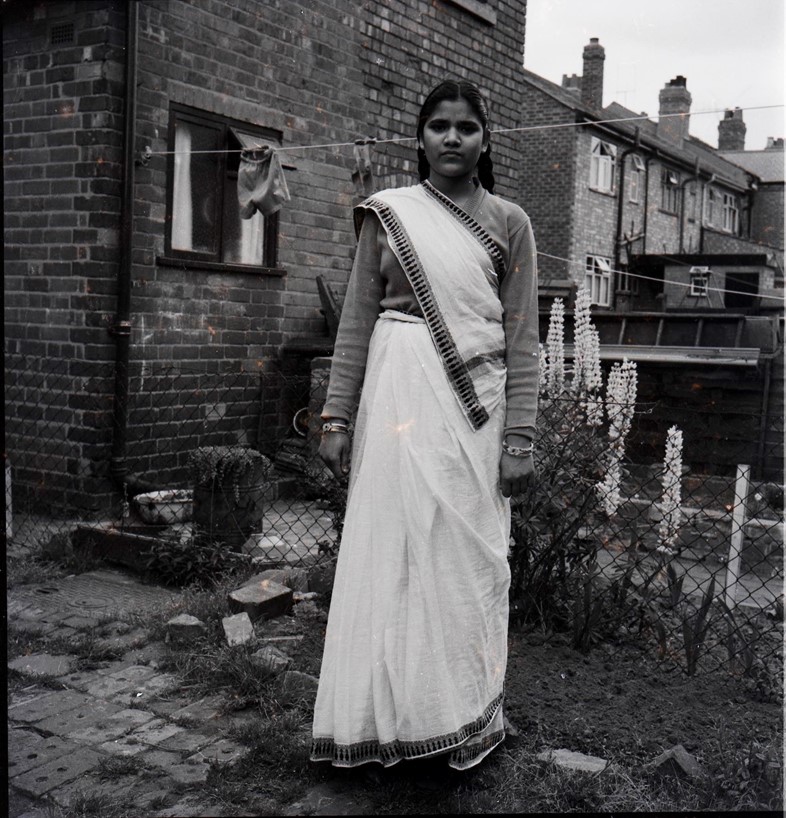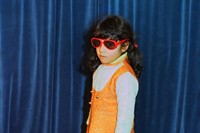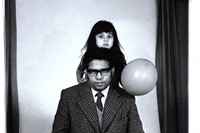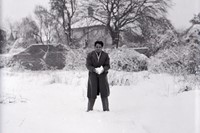Maganbhai Patel – better known as Masterji – spent over five decades capturing the migrant community of the West Midlands
Maganbhai Patel – better known as Masterji, affectionately named on account of his early career as a headmaster in South Gujarat – was in his 90s when his photography found critical acclaim, off the back of a solo show as part of Coventry’s City of Culture bid in 2016.
Masterji had arrived at the medium decades earlier. In 1951, he became a member of the photographic society of Coventry’s General Electric factory, and by 1969 – having procured a Kodak Box Brownie and a sizeable reputation within his immediate community – he quit the firm and opened Master’s Art Studio.
“The shop and home space are literally on top of each other, so growing up you’d have to come through the studio to get to the house,” his daughter, Tarla Patel remembers over Zoom. “Helping with photo albums, holding things, trying to keep the attention of a child, it was just something you got called down to do. And to go the bathroom, you had to knock on the door to make sure he wasn't developing film.”
Masterji died just 15 months after the Coventry show, aged 95, and Tarla has since taken on his archive, aiming to preserve the vast number of negatives, many of them casually hidden away in envelopes. Through the Lens of Masterji, Compton Verney’s major new survey of the work, is a powerful celebration of his contribution to the South Asian and wider migrant community in the West Midlands. Comprised of work made from the 1950s through to the 2000s, the exhibition carefully marries the heavily staged black and white images of Masterji’s early years with the more personal, full-colour projects of his later work.
“We used to have our photographs taken all the time as children. There’s more of my sister, because I was a bit sulky and she loved it,” Tarla says. “So I’ve always known he was a photographer, but never really how special it was. It took until 2015 for me to really start to think about who came into the shop and the stories.” It was around this time that she attended a photography course in Birmingham and made the connections that would lead to the 2016 show.
“My introduction to Masterji’s work came via Tarla,” explains Oli McCall, a curator at Compton Verney. “There are some really fantastic, strong images in the show including an amazing image of a guy called Gordonbhai Bhakta, an acquaintance of Masterji’s who was passing through Coventry and had his portrait taken. He’s reclining on a coffee table, he’s got this vase of flowers next to him, a book and glasses and this sharp suit. It’s a really evocative image that’s very of its time, and harks back to Hollywood. You can see there, all of the techniques Masterji’s used to convey an impression of material success.”
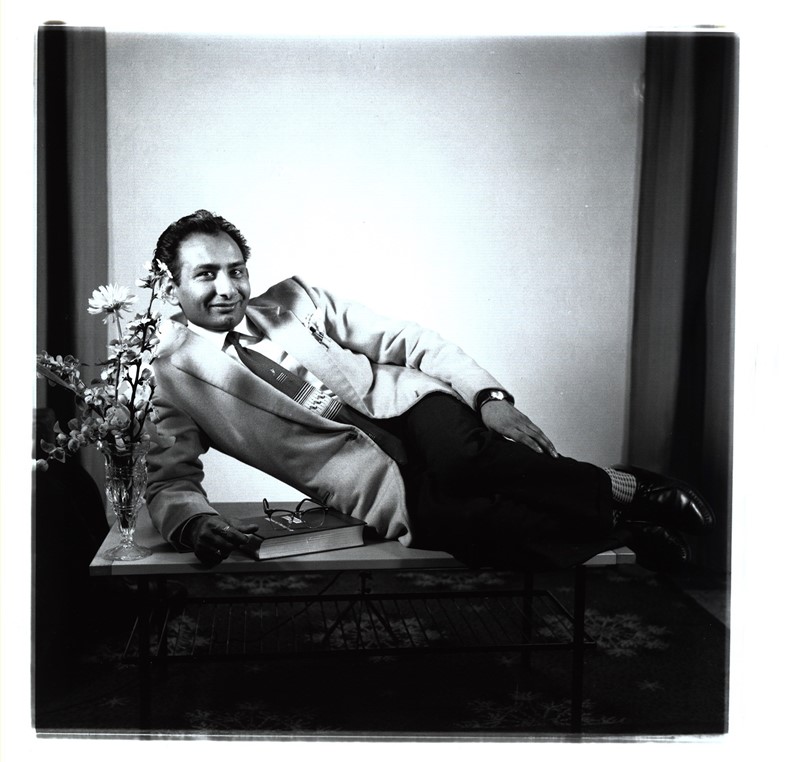
In addition to Masterji’s extensive catalogue, his wife, Ramaben Patel, is also acknowledged. “My dad used to train people in Coventry, sometimes he’d double book and be out of the studio, so my mum would take photographs and do a bit of developing,” recalls Tarla. “She didn’t recognise her role at all, so it’s really lovely to see her name in print.”
There are also a series of oral histories that further the narrative posed by Masterji’s pictures. “I think it’s important that people of that era are remembered,” Tarla says. “It’s about representation. I question why I didn’t perceive my dad’s work at an earlier age and honestly, it’s because you don’t see people of colour [in those gallery spaces]. I look at some of the images now and I’m sure he aspired work in magazines – he’s got people in different poses, looking in different ways.”
“What comes through in the recordings is the sense that these images are treasured possessions for people, the only images they have of older generations and special occasions,” adds McCall. “As well as being deeply personal, [the exhibition] is a recognition of how unique and important this archive is. It’s a visual representation of that social history of migration to Coventry: an internationally relevant story.”
Through the Lens of Masterji is showing at Compton Verney until May 22
